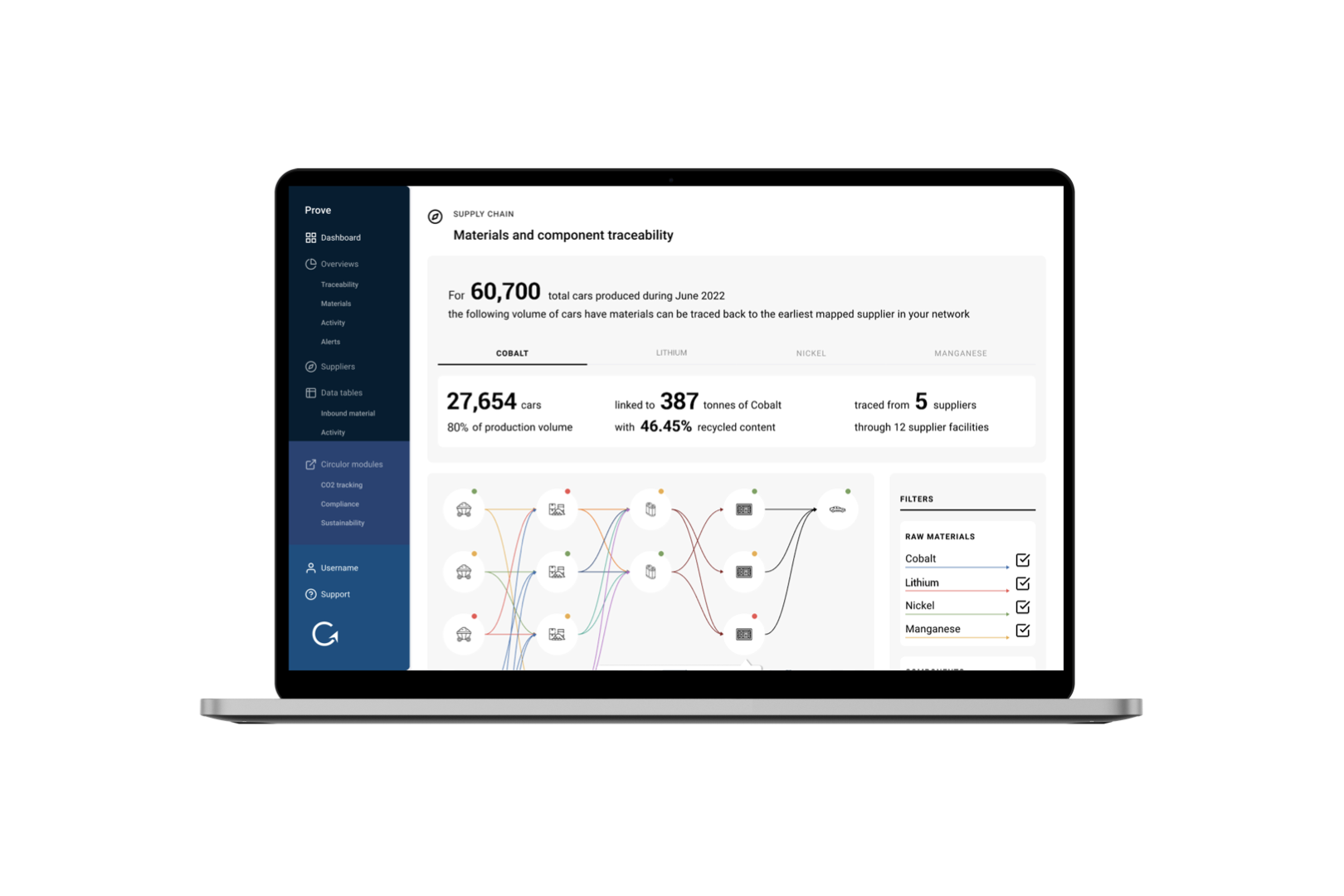
25.01.2024
Commentary
The EU is cracking down on greenwashing with its EU Green Claims Directive—here's how Circulor can help
Earlier this year, the European Commission proposed a new directive which will compel companies to authenticate any voluntary ‘green’ claims they wish to make about their products or services.
The new rule states that claims must be reliable, comparable, and verifiable across the EU, must protect customers from greenwashing, allow customers to make informed decisions and therefore contribute to the circular economy, and establish a level playing field among companies.
The genesis of the EU’s Green Claims Directive was a study carried out in 2020 which discovered that large numbers of companies were making claims that they could not substantiate. The survey found 42% of ‘green’ claims made in the EU were either exaggerated, false, or deceptive; 59% of environmental claims were either vague or misleading; and overall, 37% were unsubstantiated.
Recently, the European Parliament and Council reached provisional agreement on the new rules governing environmental claims, and Europe is expected to legislate the directive into law as early as the first half of 2024, with Member States needing to integrate its enforcement in 2026.
What will the Directive cover?
The Green Claims Directive has a broad scope and will cover “any voluntary claim that implies a product or service has a positive, reduced, or neutral (carbon neutral) impact on the environment.” It will not cover claims and labels that are already governed by other EU laws.
To use terms such as ‘carbon-neutral’, ‘climate-neutral’, ‘environmentally friendly’, ‘eco-friendly’, or ‘energy efficient’ will now require demonstrable verification.
Penalties for non-compliance will be severe. Companies found to be in breach of the directive could face fines of up to 4% of the annual turnover in the Member State where the infringement occurs; seizure of revenues from non-compliant transactions; and exclusion from public procurement and funding for up to a year.
While the disadvantages for not complying are clear, the advantages for following the directive are even more compelling – it can be good for business. According to a study by KPMG, two-thirds of UK consumers, for example, seek out eco-friendly products; more than half will refuse to buy products from companies that are not truthful about their green credential; and almost 20% have already stopped buying from brands over greenwashing concerns.
In a time in which consumers and investors are increasingly conscious of ethical and sustainable practices, being able to prove green claims will not only help boost a company’s brand reputation and loyalty but will also enable them to gain a competitive advantage and comply with increasingly stringent global regulatory requirements.
How does Circulor help companies prove responsible and sustainable practices?
With the Green Claims Directive set to illuminate how companies validate their environmental claims, Circulor's expertise in supply chain mapping, material traceability, and digital product passports becomes indispensable. Companies will need to back up any claims they make with data that is specific to their products or services – and providing auditable data is Circulor’s expertise.
Circulor's supply chain traceability solution stands out as the most mature and complete solution available. The enterprise software empowers businesses to map, track, and analyze their supply chains, facilitating data-driven decision making for sustainable and responsible sourcing. Supply chain mapping allows clients to identify and verify the participants in the deeper tiers of their supply chain by mapping and visualising the flow of goods, information and resources from suppliers.
Then, by tracing physical materials through every production step, Circulor establishes a reliable digital chain of custody, meeting the directive's requirements for reliability and verifiable proof.
As well as tracking materials as they change chemical and physical state from raw to final product, with traceability enabled at every production step to create a reliable digital chain of custody, Circulor is also able to attribute ESG and compliance data to the flow of materials, including embedded carbon emissions.
Finally, pulling comprehensive supply chain data together into a product specific digital tool, Circulor offers its digital product passport solution. Circulor’s Digital Product Passport ingests and organizes the multitude of static and dynamic data gathered from production and a company’s suppliers. When combined with data from Circulor’s Material Traceability and Emissions Tracking modules, the Digital Product Passport provides verifiable proof of material provenance and the production journey along with inherited CO₂-e emissions, proof of compliant sourcing requirements, recycled content quotas and collection targets as reach end-of-life.
How to get started
Collaborating with an experienced third-party service provider like Circulor can be an efficient way to establish truly transparent and ethical supply chains, meet sustainability goals and regulatory requirements, while mitigating risk and safeguarding integrity. Circulor already works at scale with numerous automotive OEMs in their battery supply chains, including Volvo Cars, Polestar, Volkswagen, Daimler, and BMW – and the list is only growing.
As the Green Claims Directive creates greater corporate accountability, companies must proactively address greenwashing concerns to maintain consumer trust and regulatory compliance. Circulor emerges as a vital ally in this journey, offering a comprehensive solution to ensure transparent, ethical, and sustainable business practices.






![Acculon RA Circulor - website image.001[44].png](/_next/image?url=https%3A%2F%2Fdecisive-wonder-fa24533282.media.strapiapp.com%2FAcculon_RA_Circulor_website_image_001_44_2720fb315d.png&w=1920&q=75)



